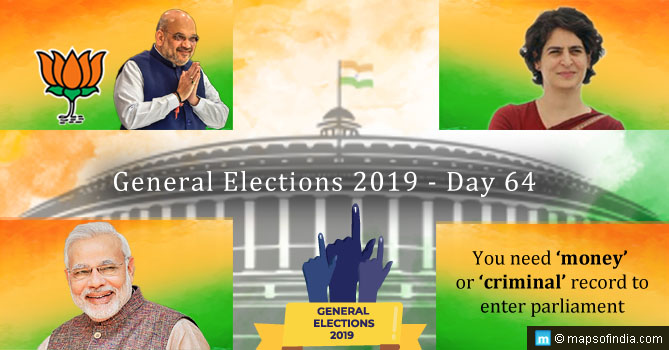In Colombo, while addressing parliament for the first time recently, Prime Minister Ranil Wickramesinghe vowed to give full powers to the provincial councils including the Tamil-dominated northeast region of the island nation. He said his government would implement the 13th amendment of the country’s constitution. With this, indication was made that he wants to turn a new page in the affairs of his country where the January 8 Presidential polls brought about a crushing defeat to Mahinda Rajapaksa who out of confidence, advanced the election a full 16 months ahead of schedule. In his long spell of rein, from 2005 to 2015 January, Rajapaksa was credited with removing the scourge of LTTE-led insurgency from the nation. He had also brought in prosperity in the country. Over the course of 2003 to 2012, the island country witnessed 6.4 per cent annual growth in its economy. In 2013, driven by a rebound in the service sector, it saw around 7 per cent economic growth. This led to Sri Lanka experiencing a decline in its poverty level; from 23 per cent in 2002, the poverty level declined to around 8 per cent in 2014. Yet President Rajapaksa failed to win trust of the Tamil minority, Muslims and members of the majority Sinhala community. Rajapaksa couldn’t win confidence of India either.
His dalliance with China, including on strategic matters, led to infusion of cynicism in New Delhi and Colombo relations. However, with newly elected President Maithripala Sirisena at the helm of his country’s affairs, a fresh energy and enthusiasm have been sought to be injected in the two close neighbours’ relations. It was clear as soon after his election, Sirisena declared making India first port of call of his foreign visit. Indeed, just five days after swearing-in of the new government in Colombo, Foreign Minister Samarweera landed in New Delhi to do spade work before President Sirisena’s visit, expected to be held in February.
It is said that in the course of his meetings with Indian counterpart Sushma Swaraj and Prime Minister Narendra Modi, Lankan Foreign Minister Samarweera reiterated his government’s desire to enhance bilateral relationship with India. Issues like defence, investments and Chinese warships’ docking at Colombo port were discussed during Sri Lankan Foreign Minister’s meetings with Indian leaders. In all, the visit gave New Delhi an opportunity to peep through the new Sri Lankan government’s roadmap towards India that had witnessed several moments of hiccup during Rajapaksa’s regime. On the human rights issue, both the countries were not on the same page. In 2009, 2012 and 2013 New Delhi sided with the US-backed resolution at the Geneva-based Human Rights Council, while countries like China voted against it. This resolution called for a probe into alleged war crimes by Sri Lankan forces in the last phase of their anti-LTTE operation in 2009. Last year, despite being unhappy with Colombo, India didn’t support the UN Human Rights Council resolution in Geneva, instead it absented from backing it. Then on the issue of returning Tamils’ land seized by Sri Lankan military in that country’s northeast region, the Rajapaksa regime had taken no move to resolve it despite India raising it repeatedly during talks with Sri Lankan leaders.
Rubbing salts to minority Tamils’ wound, Colombo had last year issued a gazette notification, declaring that camps of Sri Lankan army regiment’s 11th battalion built in the Jaffna peninsula would be made permanent, thereby denying Tamils any possibility of return to their land and houses they own. Experts say that since the defeat of the LTTE, armed forces are more discreetly involved in all levels of civilian administration especially in the North of the island nation. Brussels based International Crisis Group, a non-profit non-governmental organisation, recently presented a report maintaining that, “instead of giving way to a process of inclusive, accountable development, the (Sri Lankan) military is increasing its economic role, controlling land and seemingly establishing itself as a permanent, occupying presence.” The new Sri Lankan government has promised to look into these issues, including that of resettlement of thousands of internally displaced people about which the previous regime had paid no heed to New Delhi’s concern.
On strategic matters, it is said that Colombo used every trick at its disposal to put India on the mat. It allowed Chinese warships and submarines to dock twice at the Colombo’s harbour last year; first in the month of May when India’s stand- off with China in Ladakh was on its peak and, second in November. All this took place even as India and Sri Lanka renewed their commitment to protect each other’s economic, territorial and strategic interests. According to an estimate, more than 230 Chinese warships had called at Colombo port for goodwill visits or refuelling in the last four years. Alarmed with such rise in Chinese warships’ arrival at Sri Lankan ports, India had sent Defence Secretary R K Mathur to Colombo last year. But that hardly stopped Colombo from leaning towards China, the fire-spitting dragon which has provided loans on generous repayments to the country besides, investing in major infrastructure projects such as roads, dams, ports, power plants and railways of the island country. Further glue to Colombo and Beijing’s ties was provided when Chinese President Xi Jinping visited Sri Lanka in September last year. It was due to growing bonhomie between Sri Lanka and China that Colombo took no time to jump the Maritime Silk Road bandwagon when Beijing shown its desire to accommodate the island nation in this ambitious strategic plan.
However, as a new era begins with the incumbent Sri Lankan government pledging to review the previous regime’s internal and external policies, New Delhi has no option but to closely watch the development unfolding in the neighbourhood. On its part, though, India has made it clear that it would stand by Sri Lanka no matter what priorities it adopts for New Delhi. And this was clear when Prime Minister Narendra Modi promptly reached out to Sirisena to congratulate him on his victory in the island country’s election. In fact, it is being speculated that defeat of Rajapaksa means a greater role for India in the island nation. For the moment, however, New Delhi is looking forward to the new Sri Lankan President’s arrival.




